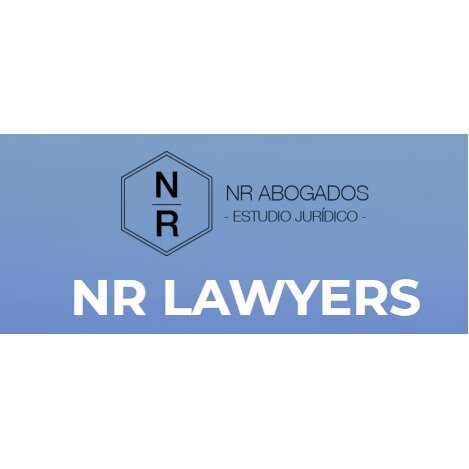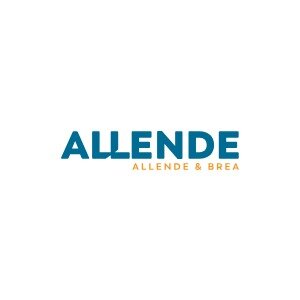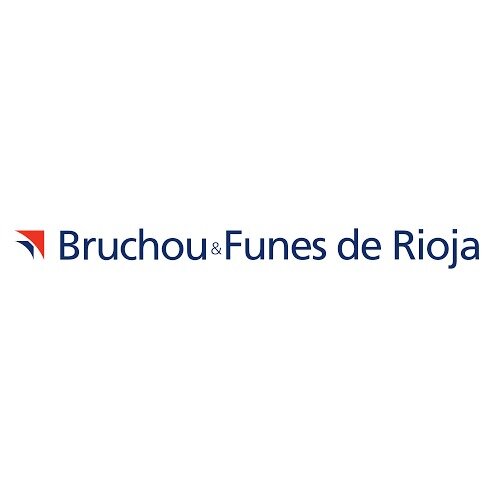Best Sustainable Finance Lawyers in Argentina
Share your needs with us, get contacted by law firms.
Free. Takes 2 min.
Or refine your search by selecting a city:
List of the best lawyers in Argentina
About Sustainable Finance Law in Argentina
Sustainable finance refers to financial activities that take environmental, social, and governance (ESG) factors into account. In Argentina, sustainable finance is gaining momentum, bolstered by recent legislation and growing societal demand for responsible investing. This includes green bonds, investments that prioritize environmental or social objectives, and regulatory requirements that favor sustainable practices. The country is aligning with international sustainability frameworks and developing local strategies to encourage both private and public sector financial flows toward sustainable development goals.
Why You May Need a Lawyer
Sustainable finance involves complex and evolving legal standards. Individuals and organizations often seek legal advice for various reasons, such as structuring green bonds, ensuring regulatory compliance, conducting environmental and social due diligence, or understanding the impact of local regulations on investments. Other situations might include disputes related to sustainability-linked loans, public disclosure obligations, shareholder activism, or evaluating the legal risks and opportunities associated with transitioning to more sustainable business models. A lawyer can help navigate these complexities, prevent legal pitfalls, and ensure that activities meet both local and international standards.
Local Laws Overview
Argentina has developed a framework to foster sustainable finance, which includes the following key aspects:
- In 2019, the National Securities Commission (CNV) introduced regulations that enable the issuance of green, social, and sustainability bonds in Argentina. These instruments must fund projects with clear environmental or social benefits and require issuers to report on impact.
- Financial entities are increasingly required to include ESG criteria in risk assessment and reporting, primarily based on CNV guidelines and recommendations in line with global standards.
- Companies listed on the Buenos Aires Stock Exchange have growing ESG disclosure obligations, including annual sustainability reports, subject to evolving regulations.
- Argentina has signed up to the Paris Agreement and its national development plan (Plan Nacional de Adaptación y Mitigación al Cambio Climático) includes a financial component that encourages the flow of investment to sustainable projects.
- Recent governmental incentives and pilot programs support renewable energy, sustainable agriculture, and infrastructure development, often with financial regulations attached.
Frequently Asked Questions
What is considered a sustainable financial product in Argentina?
A sustainable financial product in Argentina is any financial instrument that channels investment into projects or activities with environmental or social benefits, such as green bonds, social bonds, sustainability-linked loans, or ESG-focused investment funds.
Who regulates sustainable finance in Argentina?
The main regulatory body is the National Securities Commission (CNV), with certain aspects also overseen by the Central Bank of Argentina (BCRA) and sector-specific authorities for particular industries like energy or agriculture.
What are green bonds and how do they work?
Green bonds are debt instruments that raise capital exclusively for projects with clear environmental benefits, such as renewable energy, pollution prevention, or sustainable infrastructure. Issuers must track and report on how the funds are used.
What disclosures are required for sustainable finance instruments?
Issuers must publish pre-issuance frameworks, annual impact and allocation reports, and may need an independent assessment or external review to validate the environmental or social claims of their projects.
Are there tax incentives for sustainable finance in Argentina?
Some sustainable projects may qualify for tax benefits, especially in renewable energy or sustainable agriculture, but currently there are no comprehensive tax incentives dedicated solely to green bonds or similar instruments.
Can small businesses access sustainable finance options?
Yes, although access is generally easier for larger entities. Some government programs and development banks offer loans and technical assistance to small and medium-sized enterprises (SMEs) for sustainable projects.
What international standards influence local sustainable finance laws?
Argentina’s regulations are often aligned with international frameworks like the Green Bond Principles, the Paris Agreement, and G20 Sustainable Finance Study Group recommendations.
Does non-compliance with ESG regulations have legal consequences?
Yes. Non-compliance may result in fines, reputational damage, investor lawsuits, or other regulatory penalties, depending on the specific law or regulatory requirement involved.
What are sustainability-linked loans?
These are loans with terms, such as interest rates, that vary based on the borrower’s achievement of pre-agreed sustainability performance targets.
How can I verify if a sustainable investment is legitimate?
Check for regulatory registration, independent assessments, performance reporting, and whether the issuer follows recognized international sustainability frameworks. Legal advice is recommended for thorough due diligence.
Additional Resources
If you need reliable information or support, these resources may assist you:
- National Securities Commission (CNV) - provides regulations, reports, and guidelines specific to sustainable finance.
- Central Bank of Argentina (BCRA) - issues directives for banks and other financial entities regarding ESG integration.
- Ministry of Environment and Sustainable Development - offers information on governmental sustainability strategies and projects.
- Argentine Chamber of Sustainable Finance - a non-governmental organization supporting the development of sustainable finance practices.
- Argentine Business Council for Sustainable Development (CEADS) - provides resources and workshops for businesses seeking to improve sustainability.
Next Steps
If you think you require legal assistance in sustainable finance, consider these actions:
- Gather all relevant documentation about your project or investment, including business plans, previous legal or financial assessments, and regulatory correspondence.
- Clearly define your objectives and the challenges you are facing in the realm of sustainable finance.
- Contact a lawyer or legal firm with expertise in sustainable finance or ESG-related matters. Verify their credentials and experience with similar projects.
- Prepare a list of questions or concerns to make discussions with your lawyer efficient and productive.
- Stay informed by monitoring regulatory changes and consulting with sector-specific advisors or accountants as needed.
- If unsure where to start, you may reach out to professional associations or governmental agencies listed in the resources section for initial guidance or referrals.
With proper legal guidance, you can navigate the opportunities and challenges in Argentina’s sustainable finance sector effectively and responsibly.
Lawzana helps you find the best lawyers and law firms in Argentina through a curated and pre-screened list of qualified legal professionals. Our platform offers rankings and detailed profiles of attorneys and law firms, allowing you to compare based on practice areas, including Sustainable Finance, experience, and client feedback.
Each profile includes a description of the firm's areas of practice, client reviews, team members and partners, year of establishment, spoken languages, office locations, contact information, social media presence, and any published articles or resources. Most firms on our platform speak English and are experienced in both local and international legal matters.
Get a quote from top-rated law firms in Argentina — quickly, securely, and without unnecessary hassle.
Disclaimer:
The information provided on this page is for general informational purposes only and does not constitute legal advice. While we strive to ensure the accuracy and relevance of the content, legal information may change over time, and interpretations of the law can vary. You should always consult with a qualified legal professional for advice specific to your situation.
We disclaim all liability for actions taken or not taken based on the content of this page. If you believe any information is incorrect or outdated, please contact us, and we will review and update it where appropriate.
Browse sustainable finance law firms by city in Argentina
Refine your search by selecting a city.

















